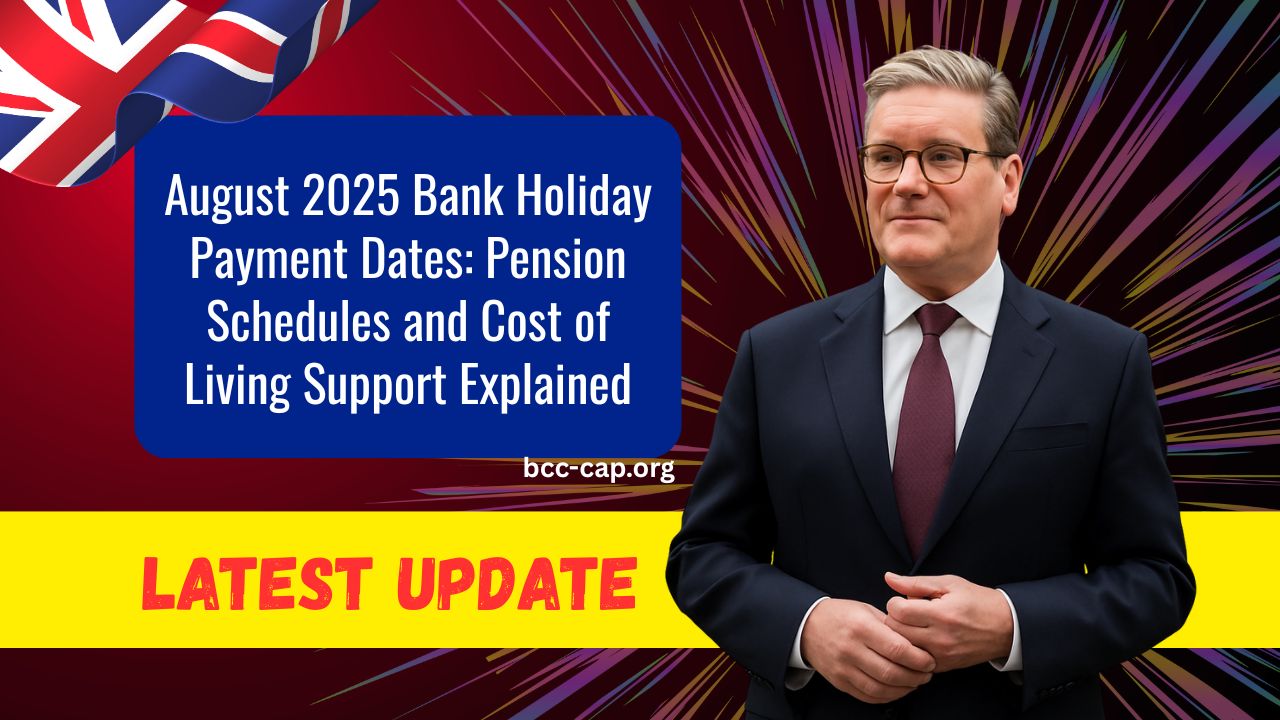For millions across the United Kingdom, staying afloat financially remains a significant challenge. Despite inflation cooling to pre-pandemic levels, the price of basic goods remains high, outpacing stagnant wages and rising household bills.
According to the Resolution Foundation, essential costs have stayed elevated well beyond the peak of the 2022 crisis. Households are increasingly reliant on credit and loans just to cover daily needs.
Food and Energy Insecurity Remain Critical
Data from The Food Foundation reveals that approximately 7.3 million adults (13.9% of households) experienced food insecurity in January 2025, showing no signs of improvement.
In parallel, energy bill arrears have skyrocketed—reaching £3.9 billion by the end of 2024, more than double what they were five years ago.
Millions Rely on Benefits – But Many Miss Out
Currently, around 24 million people across the UK receive some form of DWP-administered benefits, covering approximately one-third of the population.
However, £23 billion in benefits goes unclaimed annually, as noted by Policy in Practice.
If you’re unsure about your entitlements, using an online benefits calculator can help determine potential support.
August 2025 Benefit Payment Schedule
Most benefit payments in August will be made as usual, with one exception due to the Summer Bank Holiday on Monday, 25 August.
If your payment is scheduled for this date, it will instead be issued on Friday, 22 August.
Benefits Included:
- Universal Credit
- State Pension
- Pension Credit
- Child Benefit
- Disability Living Allowance (DLA)
- Personal Independence Payment (PIP)
- Attendance Allowance
- Carer’s Allowance
- Employment Support Allowance (ESA)
- Income Support
- Jobseeker’s Allowance (JSA)
State Pension Payment Dates in August
Basic state pension payments are made directly into recipients’ bank accounts every four weeks.
The payment date depends on the final two digits of your National Insurance number:
| NI Number Ending | Payment Day |
|---|---|
| 00 to 19 | Monday |
| 20 to 39 | Tuesday |
| 40 to 59 | Wednesday |
| 60 to 79 | Thursday |
| 80 to 99 | Friday |
Changes in Benefit and Pension Rates
In April 2025, all working-age benefits increased by 1.7%, aligned with September 2024 inflation. Meanwhile, the state pension rose 4.1%—equating to a £472 annual increase—under the triple lock system.
Further changes are expected:
- From April 2026, Universal Credit will rise above inflation yearly until 2029.
- However, the health-related component for new Universal Credit claimants will drop from £105 to £50 per month and remain frozen until 2029—a significant cut of over £200 monthly.
Other Financial Support Available
Budgeting Advance Loans
Those on Universal Credit facing a sudden financial emergency may apply for a budgeting advance, repaid over two years without interest:
- £348 if single
- £464 if in a couple
- £812 if responsible for children
From April 2025, repayment deductions are capped at 15% of the Universal Credit standard allowance, down from 25%.
Discretionary Housing Payment (DHP)
Households receiving Housing Benefit or the housing element of Universal Credit may apply to their local council for extra help with:
- Rent shortfalls
- Deposit or rent in advance
Eligibility varies by local authority.
Household Support Fund (HSF)
The HSF offers assistance including:
- Utility bill contributions
- Cash grants up to £300
- Essential appliances
Administered by local councils, this fund will transition into the Crisis and Resilience Fund by March 2026, with £1 billion in government backing.
Charitable Grants
Several organizations offer charitable grants for people in financial hardship, including:
- Carers
- The unemployed
- Bereaved individuals
- Students
- Disabled individuals
Use grant search tools like those on Turn2us to explore available aid.
Additional Forms of Support
Help From Energy Providers
Suppliers like British Gas, Octopus, EDF, and E.ON offer hardship support programs. Contact your provider to inquire about available assistance.
Council Tax Reduction
You may qualify for a discount up to 100% based on:
- Low income
- Benefit eligibility
- Severe financial hardship
Apply via your local council.
Free Childcare for Working Parents
As of April 2024, working parents are entitled to:
- 30 free hours/week for ages 3–4
- 15 free hours/week for 2-year-olds
- From September 2025, 30 hours/week for children aged 9 months to 5 years
Energy Price Cap Drop
The Ofgem energy price cap dropped 7% to £1,720 for July–September 2025, offering relief after three straight increases.
Will There Be Another Cost of Living Payment in 2025?
The Cost of Living Payments concluded in February 2024, and the DWP has not confirmed any further installments in 2025.
Mental Health Support Services
- Samaritans: Call 116 123 (free, 24/7)
- Mind: Support line at 0300 102 1234 or 0300 123 3393 for info
- Scope: Offers online support forums for disabled individuals
- NHS England: Online mental health triage and services available
Despite improvements in inflation rates, the cost of living remains a persistent burden for many UK households.
With millions depending on DWP benefits, it’s crucial that individuals and families explore all available financial support options—from Universal Credit, Pension Credit, and budgeting loans, to local council aid, charitable grants, and mental health services.
Staying informed and proactive can ensure you’re receiving the help you’re entitled to during these uncertain times.
FAQs
1. What happens if my benefit payment falls on a bank holiday in August 2025?
If your benefit is due on Monday, 25 August, it will instead be paid on Friday, 22 August due to the Summer Bank Holiday.
2. How can I apply for Discretionary Housing Payment (DHP)?
You must contact your local council if you’re receiving Housing Benefit or the housing element of Universal Credit. Applications are usually available online.
3. Is the Household Support Fund still active in 2025?
Yes, the Household Support Fund remains available until March 2026, offering help for essentials like food, utility bills, and appliances.

